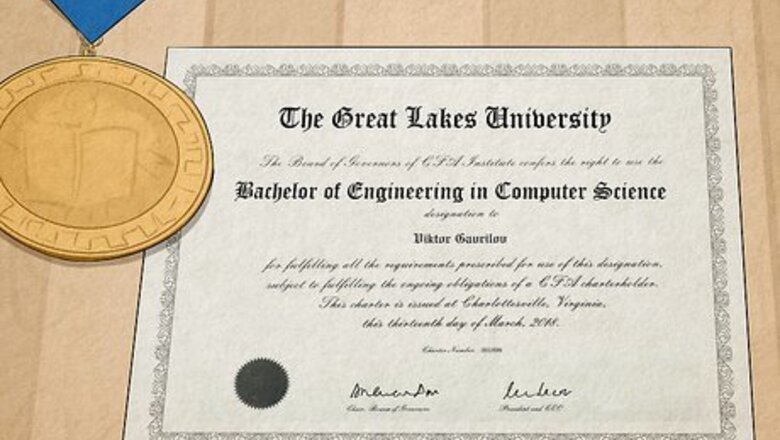
views
- Get a college degree in your coaching subject, and take a VR-specific course online for extra training.
- Study VR technology in your free time and become an expert to tackle technical difficulties that might come up.
- Pick your VR niche and get comfortable tutoring and teaching people in the subject.
- Market your business by networking with other VR coaches and offering your services for free to friends and family members.
Education and Training
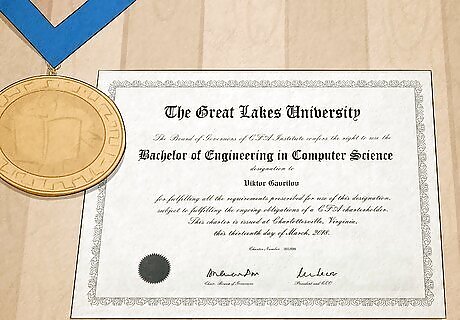
Get a college degree in your coaching subject. Most virtual reality coaches have at least a Bachelor’s Degree in whatever subject they specialize in. If you don’t have a degree already, consider going to college (or staying in college) until you’ve gotten at least 4 years of education. For instance, if you want to become a VR mental health coach, get your degree in psychology or social work. If you’d like to become a VR personal trainer, get a degree in sports medicine or physical fitness. If your speciality is virtual reality itself, get a degree in computer science or software engineering. A huge advantage of VR coaching is that the possibilities are endless! You can teach new languages, sports, technology, and anything in between.

Take a VR certification course online for extra training. College education is great, but it’s unlikely that any of your courses will focus on VR coaching. For extra training, take an online course through services like Udacity or Coursera. There, you can learn VR-specific tips and tricks to help you along your coaching journey. These courses typically have a fee, and they can cost almost as much as a college course. While courses like these aren’t required, they look great on a resume, and many VR professionals recommend them.

Get comfortable with VR technology. If you’re looking into VR coaching, you’re probably already pretty familiar with VR tech and how it works. Now’s the time to become an expert: spend extra time every week putting on your VR headset and using VR applications. Part of VR coaching is helping people with technological difficulties, especially if you want to become a coach and train people how to use VR headsets. If you already know the VR application you’d like to use in VR coaching, spend most of your time using that application. For instance, if you want to get into physical training, you might spend most of your time using Supernatural, a VR application that specializes in workouts and fitness journeys. Spatial is a VR application that provides virtual meeting rooms and offices inside the Metaverse.
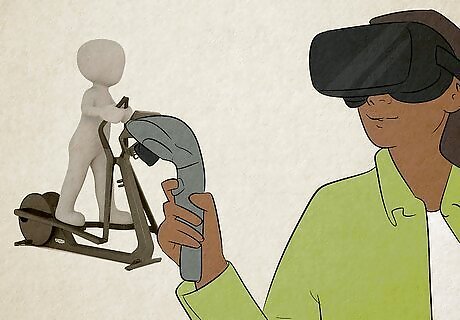
Find your VR coaching niche. There are tons of different types of VR coaches: health and wellness coaches, sports coaches, spiritual coaches, business and finance coaches, life coaches, and relationship coaches, just to name a few! As you work on getting certified and completing your education, nail down the subset you’d like to get into. You could also become a virtual reality recruiter or trainer.
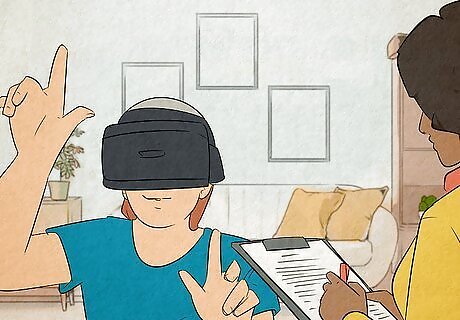
Find a mentor to train you in VR coaching. Getting started as a VR coach might take some finagling. Try looking for a VR coach who’s already working so you can learn the ropes and get some tips. If you’re in school, ask around the technology department to see if there are any professors who could help you out. Otherwise, explore the VR world and look for coaches who might take you under their wing. You can also find professional VR coaches by searching on LinkedIn. Send them a message and ask for tips or pointers from coaches in the industry.
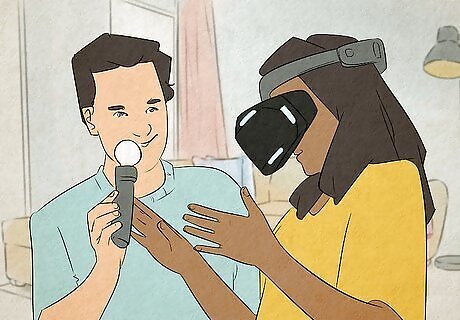
Practice teaching and tutoring others. Being a coach is all about passing your knowledge along to other people. If you don’t have experience already, volunteer as a tutor or teach some classes to other people, even if they’re in-person. That way, you have real life experience and you know what it takes to teach a room full of people. You can also find many tutoring jobs that you can do online.
Technology
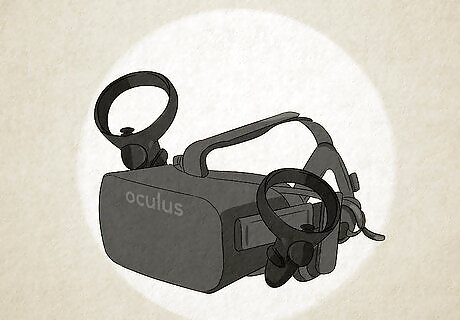
Buy a quality VR headset. To be a great VR coach, you’re going to need a great VR headset. If you don’t have one already, invest in a quality VR headset with the latest upgrades. Headsets range in price, but most good ones are around $1,000. Samsung VR, Oculus Rift, HTC Vive, and PS VR are popular brands with great ratings.
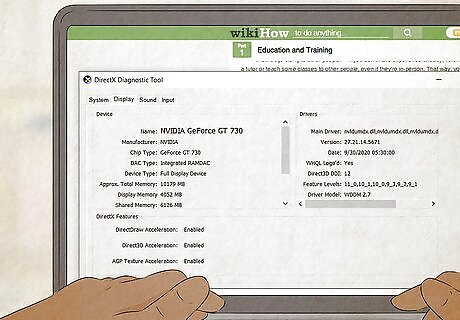
Get a PC with a fast GPU. The VR headset is only 1 component of the overall VR experience. You need a fast computer with a quality graphics processing unit (GPU) to run your VR applications. If you haven't upgraded your PC in a while, make sure that your system is new enough to run VR without any hiccups. Running VR on a slow or old computer can lead to lag, which can be frustrating for your customers. Just like a fast computer, a fast internet connection is also crucial.

Invest in a VR headset management system. VR management systems aren’t technically necessary, but they can be helpful as your business expands. Headset management systems organize your files and your data into groups and categories so that you can manage your downloads and uploads between clients. ArborXR, Contentful, and ManageXR are some of the most popular management systems out there right now.
Marketing Your Business

Offer your services for free to build business. Once you’re ready to dive into the world of VR coaching, your next step is to find clients. Try giving your friends and family members a free trial of your services to make connections and drive your business. Ask them to tell their own family and friends about your services in exchange for a free coaching session. One of the main benefits of VR coaching is that clients can access your services without leaving their homes. Be sure to emphasize that point when you’re reaching out to new customers. As you get clients (either for free or paid), use them to build a portfolio. Then, show your portfolio to potential clients to draw them in. Ask your clients to give you ratings or feedback that you can display on your portfolio or website. That way, new people know that you’re legit and can provide awesome services.
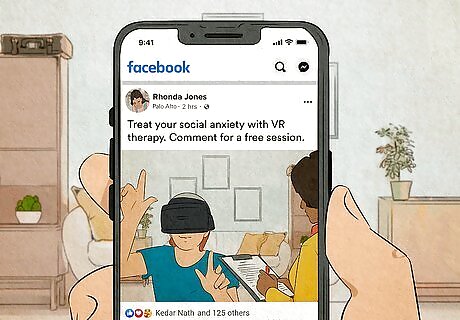
Maintain an online presence. Social media marketing is how many people drive their businesses these days. An online presence is even more important for a VR coach: since your business happens online, your customers are online, too. Create social media accounts for your business and promote your services to reach thousands of people. Make accounts on large platforms like Instagram, TikTok, Facebook, and LinkedIn.

Network with other VR coaches to make connections. People already in the industry can help you promote your business and drive clientele. Reach out on professional networking sites like LinkedIn to find other professionals in your field. Let them know that you’re new to the industry, but you’re excited to see what comes next for you and your business. You can also find other online communities for VR coaches on sites like Facebook or Meetup. The online nature of VR means that there are often VR events that you can log into with your VR headset. Keep an eye out for these opportunities, and join as many as you can to market your business.
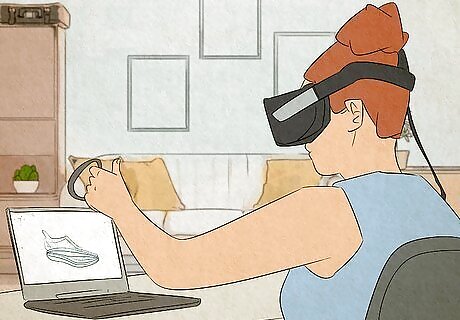
Keep up with the latest technology to stay relevant. When you’re a VR coach, you’re expected to stay up to date with the VR industry at large. Be sure to stay on top of the news and upgrade your tech as needed so your clients trust you and feel comfortable taking your advice.




















Comments
0 comment